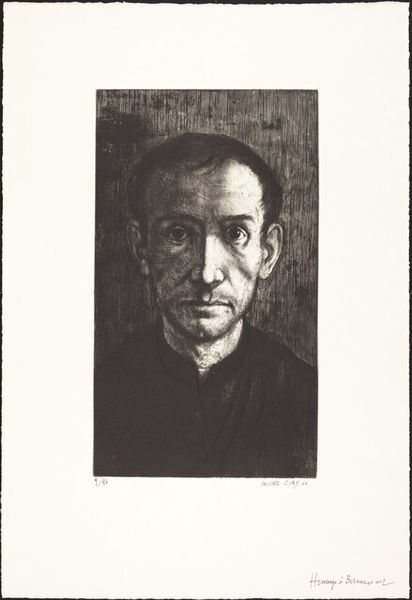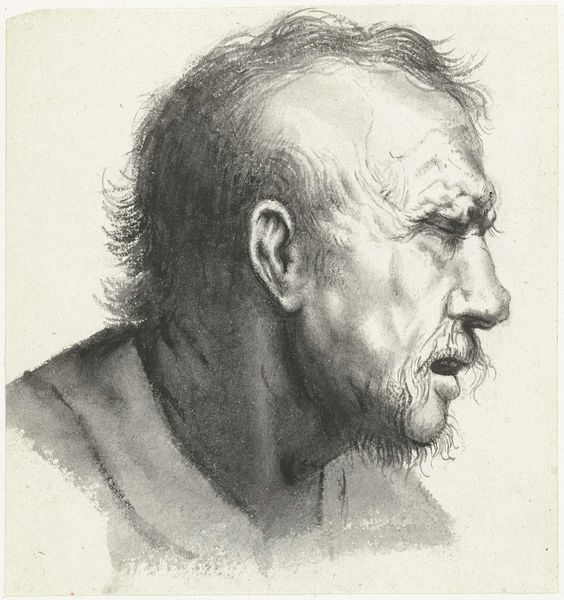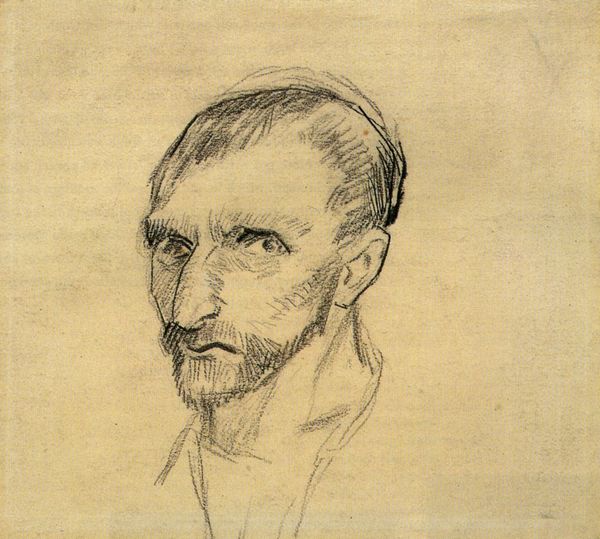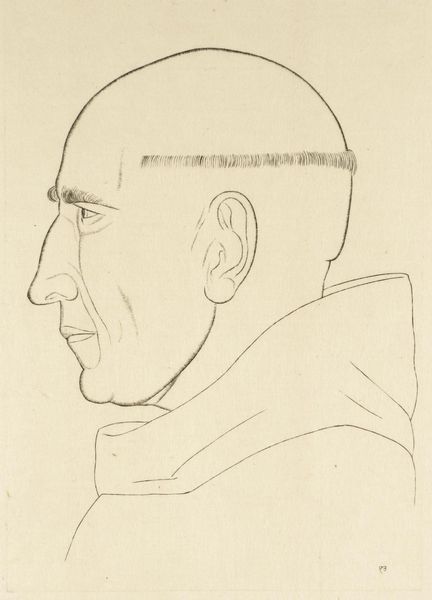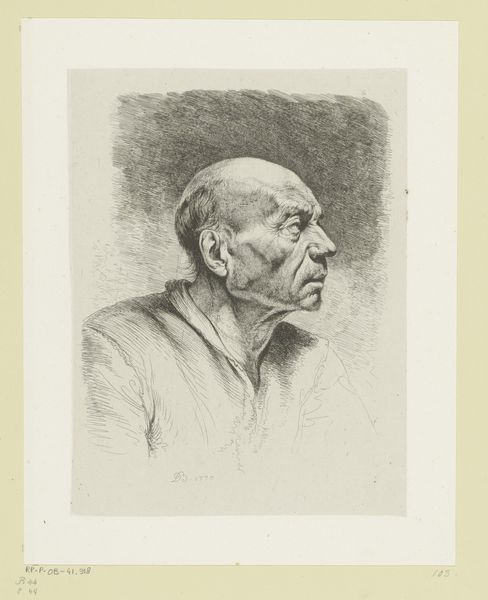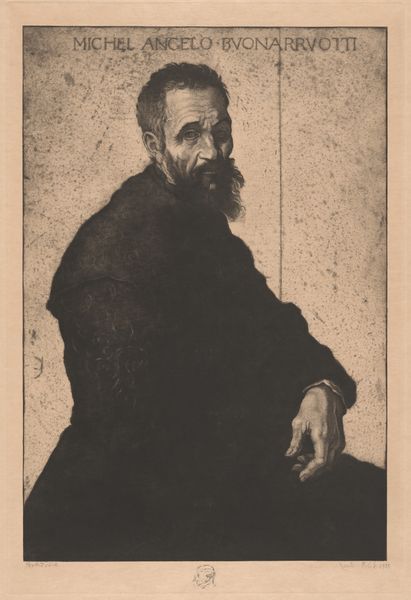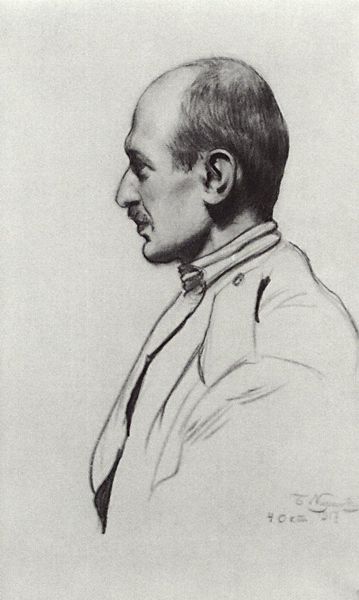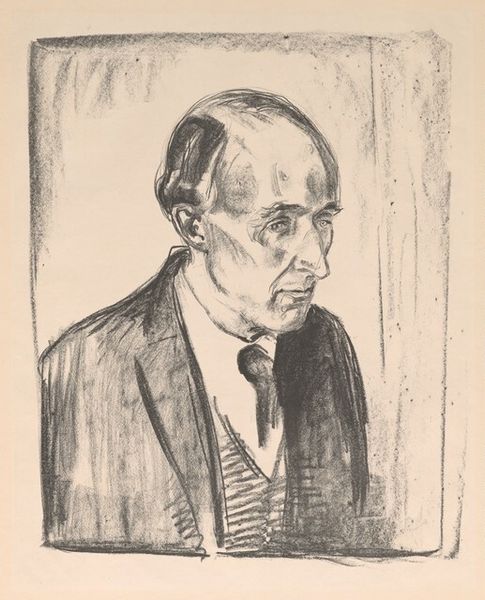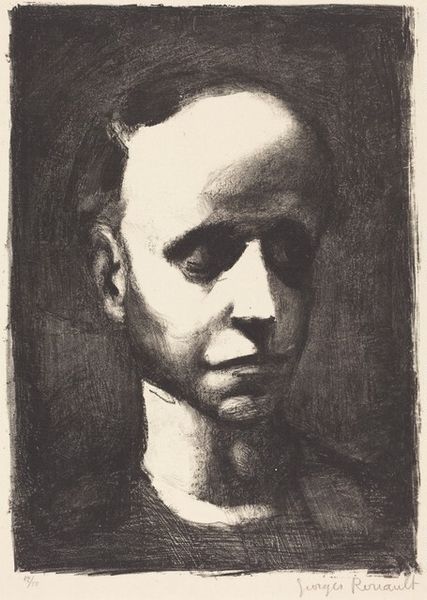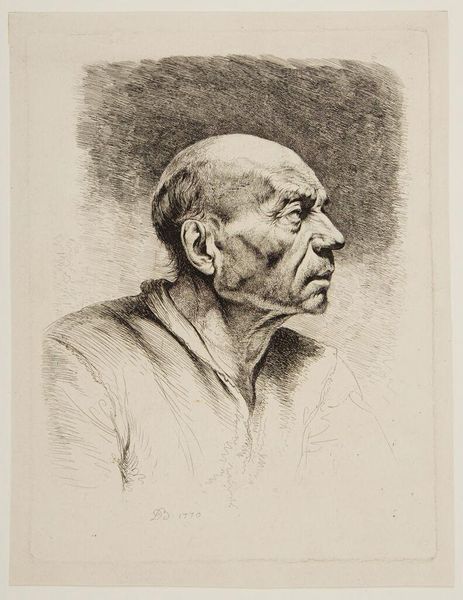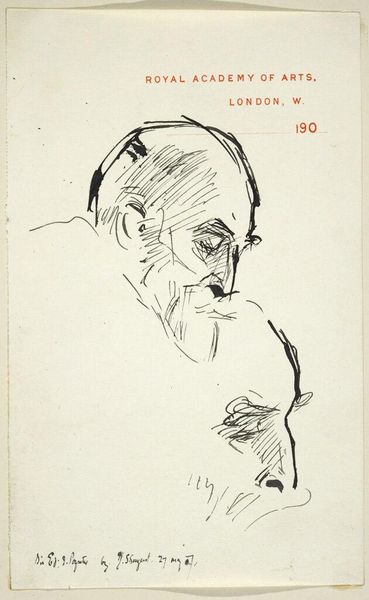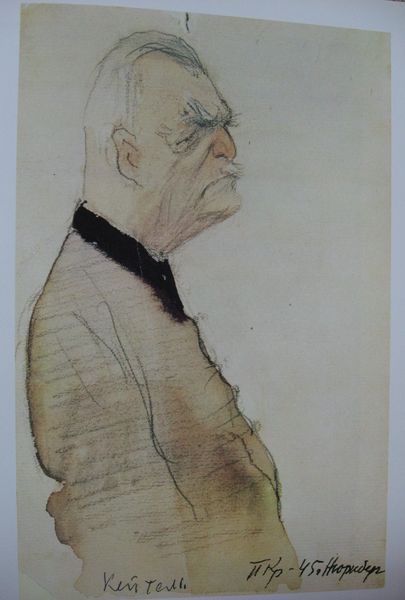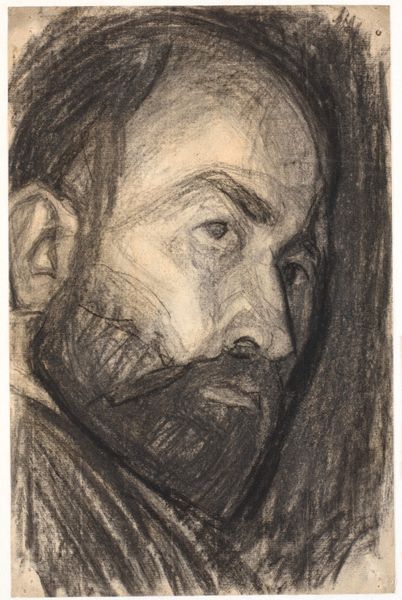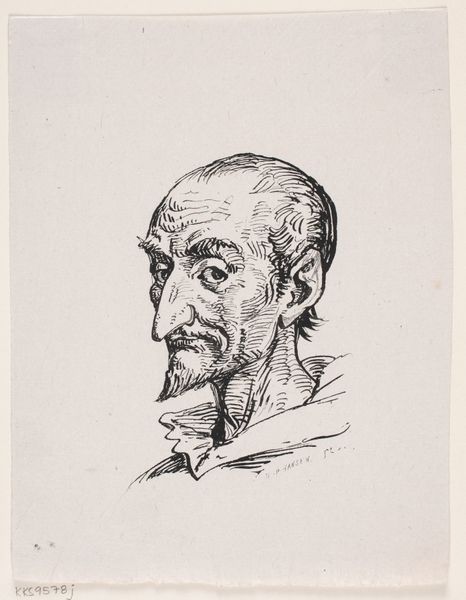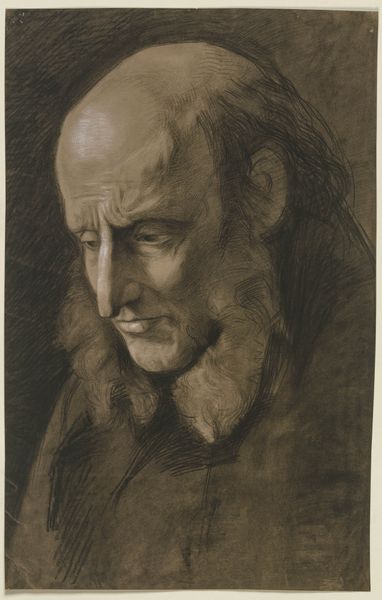
drawing, pencil, charcoal
#
portrait
#
drawing
#
facial expression drawing
#
head
#
dutch-golden-age
#
impressionism
#
portrait reference
#
male-portraits
#
portrait head and shoulder
#
sketch
#
pencil
#
animal drawing portrait
#
nose
#
portrait drawing
#
facial study
#
charcoal
#
facial portrait
#
forehead
#
portrait art
#
fine art portrait
#
realism
#
digital portrait
Copyright: Public domain
Curator: Let’s take a closer look at "The Bookseller Blok," a drawing by Vincent van Gogh from 1882. It's currently held in a private collection, and I think it speaks volumes about Van Gogh’s social consciousness. Editor: Immediately, I'm struck by the downward gaze. It's introspective, burdened somehow. There's a fragility to him, even in this sketch. Curator: Precisely. This portrait offers us a window into the lives of the working class, a subject Van Gogh returned to repeatedly, demonstrating his sympathies for the hardships they endured. The work encapsulates how his artistic explorations sought to examine social inequalities. Editor: He wasn't just observing, he was empathizing, right? I mean, you can almost feel the weight of Blok's worries. The sketch lines themselves seem to carry that weariness. Curator: Exactly. Art historians see Van Gogh’s representations of the poor as acts of resistance against societal norms, foregrounding individuals typically rendered invisible by dominant narratives. Editor: And he captures so much with so little, it's astounding! Charcoal and pencil… yet there's a whole story etched onto that paper. Blok isn’t just a face; he’s a representation of human resilience against systemic struggle, the look of generations ground under society’s gears. I’m getting emotional just looking at the sharp angles that reveal his features. Curator: Consider how "The Bookseller Blok" connects to other works exploring social realism, like those of Millet or Courbet, while anticipating the psychologically intense portraits of later expressionists. It represents not merely the depiction of poverty but acts as a commentary on the economic structure perpetuating these conditions. Editor: He was ahead of his time, seeing beyond the surface, revealing these hard realities in such an unfiltered way. Curator: Absolutely. Looking at “The Bookseller Blok," we gain not just a deeper understanding of Van Gogh’s artistic genius, but of art as an ongoing engagement with the social and political realities of its time. Editor: For me, it's about seeing ourselves in that reflection, questioning what world forces were at play then—and now. Pretty potent stuff in one simple sketch!
Comments
No comments
Be the first to comment and join the conversation on the ultimate creative platform.
